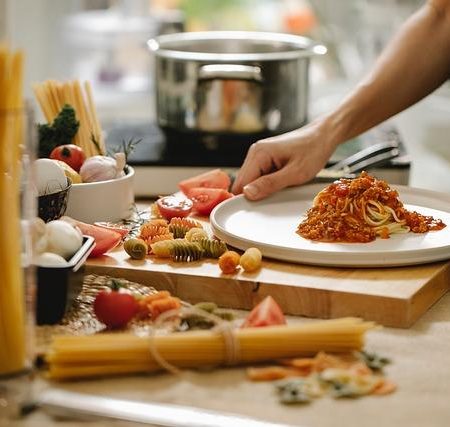We stumbled across an amazing project in Canada that is putting together a documentary to see how little one couple can contribute to a landfill in one year’s time. The couple involved in the Clean Bin Project will each keep a bin that will have all of the items destined for a landfill accumulating for one year and weigh in at the end to find the winner. The rules say that the bin will only contain anything that cannot be 100% recycled, composted or reused immediately. The couple has vowed to refrain from buying any ‘stuff’ including material goods like clothing, electronics, and other non-necessities unless they are second-hand and being rescued from the ultimate destination of a landfill.
Taking out the Trash- The Clean Bin project (trailer1) from Grant Baldwin Videography on Vimeo.
Here are some tips straight from the Clean Bin Project to help you reduce your waste:
1. Don’t use plastic bags (under any circumstances)
2. Set up your recycling in a convenient place (so you have no excuse to throw it in the trash can)
3. Set up a place to compost.
4. Recycle everything possible. (find out what your municipality will take)
5. Check the package BEFORE you buy it, to make sure it’s recyclable.
6. Buy Recycled and Biodegradable Household Products.
7. Buy second-hand whenever possible.
8. DIY. (Make it yourself from bread to clothing, shelves and more)
9. Stop Using Takeout Containers.
Here is a more descriptive list of ways to help reduce your waste.
Cheap Food Here is thinking about the challenge and preparing to get started. We are working on a compost bin, get the recycling situation sorted out and seeking to buy less packaging on our products. As far as our consumption goes, we do a fairly decent job. We don’t buy much in the way of material goods and shop at the markets much more often than the grocery stores. However, that still doesn’t account for the times we do shop at the grocery stores, when we’re eating takeout and when we need to buy clothes (once every 6 months or so).
But, regardless of all that we do, there will continue to be situations where following the ‘rules’ of the Clean Bin Project will be excrutiatingly difficult and next to impossible. Take flying for example. Here is a testimonial of a guy who asked the flight attendant first where his little plastic cup would end up after he used it and second if he could refill the same cup on the next flight. It’s shocking, yet expected what happened. These situations shouldn’t be unavoidable and it seems that the airline industry is not acting responsible enough in their waste-producing practices. Although, I will note that even though 4 million plastic cups are consumed in the US airline industry every day, at least they recycle the aluminum and paper (why not the plastic?).
We should all seek to be more responsible in our consuming and waste-producing practices. Act as a demonstration and lead others by example. At the end of the year, how much will your bin weigh?




I just hope that people would have this awareness of reducing our waste, stop buying too many things and learn how to recycle. But some people just don’t want to change because of inconvenience. It always starts from ourselves. Thanks for this wonderful post.
That’s awesome that you have taken steps to set up your compost and recycling system. We keep meeting all these inspirational people who are making small changes that have big waste impact – it really encourages us to do more!
You’re totally right about traveling making zero waste way more difficult. Sometimes we stealth compost (ie bury our organics in someone’s yard) or end up carrying packaging with us for days.
Thanks for the link!
Thanks for the positive comments. The compost pile is a learning process I think, but it cuts down on trash in the house a ton! I keep my food scraps in a bag in the fridge until it’s full and then take it out to the pile.
I just hope that people would have this awareness of reducing our waste, stop buying too many things and learn how to recycle. But some people just don’t want to change because of inconvenience. It always starts from ourselves. Thanks for this wonderful post.
+1